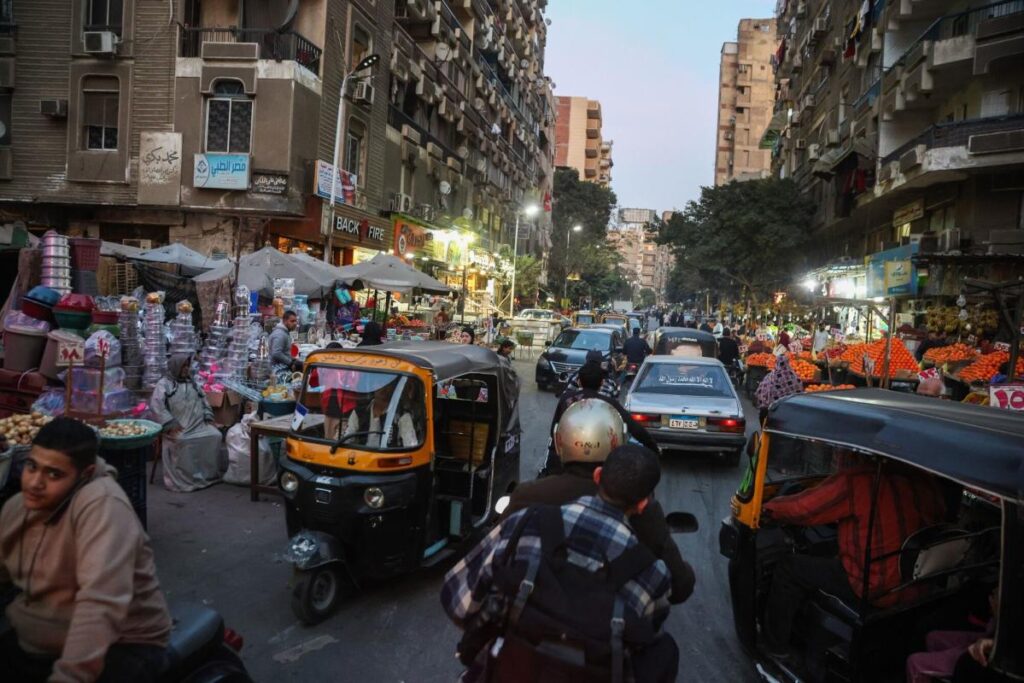Egypt’s President Abdel-Fattah El-Sisi has indicated that the country’s engagement with the International Monetary Fund (IMF) may be reconsidered if ongoing economic challenges become too burdensome for the nation’s more than 106 million citizens. In comments made during a Cairo conference, El-Sisi acknowledged that the $8 billion IMF deal, established earlier this year, is being executed under “extremely difficult regional, international and global circumstances.” He emphasized that while the government remains committed to the agreement with the IMF, any situation that leads to unmanageable pressure on the public necessitates a re-evaluation of the terms of their arrangement.
El-Sisi’s statements underscore the economic difficulties facing Egypt, which has been navigating a protracted two-year crisis that has been intensified by external factors such as the Israel-Hamas conflict. Earlier this year, the country secured a significant $35 billion investment deal with the United Arab Emirates, which enabled Egypt to implement a long-anticipated currency devaluation. This step was crucial for establishing an expanded partnership with the IMF and attaining additional international assistance. However, the structural adjustments associated with the IMF agreement, such as spending cuts and the reduction of subsidies, continue to severely affect the everyday lives of the citizens.
In recent months, the Egyptian government has increased prices for essential subsidized goods and services, including electricity, bread, and fuel. The most recent fuel price hike was the third occurrence within 2024, highlighting the ongoing trend of escalating living costs. As a result, consumer inflation has once again begun to rise, reaching 26.4% in September, after showing signs of abating in earlier months. These developments point to the difficult balancing act the government must perform—adhering to IMF mandates for fiscal discipline while managing public discontent over the rising cost of living that is often outpacing salary growth.
According to El-Sisi, there are broader economic tensions affecting countries worldwide, although he did not elaborate on specifics. He mentioned the looming fears of recession that are weighing on various economies. Egypt, a country that relies heavily on international trade and tourism, reported that it has lost between $6 billion and $7 billion over the last ten months, primarily due to geopolitical disruptions and challenges in regional trade routes. Particularly, traffic through the Suez Canal, a critical lifeline for foreign currency, has plummeted since the outbreak of hostilities involving Houthi militants targeting shipping in the Red Sea—an action taken in solidarity with Hamas.
The Egyptian economy’s struggles reveal the intricate and interrelated challenges facing the government as it navigates both domestic pressures and international obligations. The ongoing devaluation of the Egyptian pound, changes in foreign investment flows, and rising inflation all interplay with local consumer confidence. Many citizens are feeling the strain of higher living costs against stagnant or slowly rising wages, leading to growing frustration and anxiety about their financial futures. This situation further complicates the government’s plans to implement fiscal reforms while simultaneously catering to public welfare.
In summary, El-Sisi’s comments reflect an acute awareness of the delicate balance that must be maintained between meeting international financial commitments and ensuring the well-being of the Egyptian populace. As external economic pressures seem set to continue, Egypt may find itself at a crossroads where it needs to reassess its approach to the IMF and the necessary fiscal measures if the economic situation deteriorates further, risking social unrest among its citizens who are already feeling the pinch of increased prices and reduced purchasing power.

